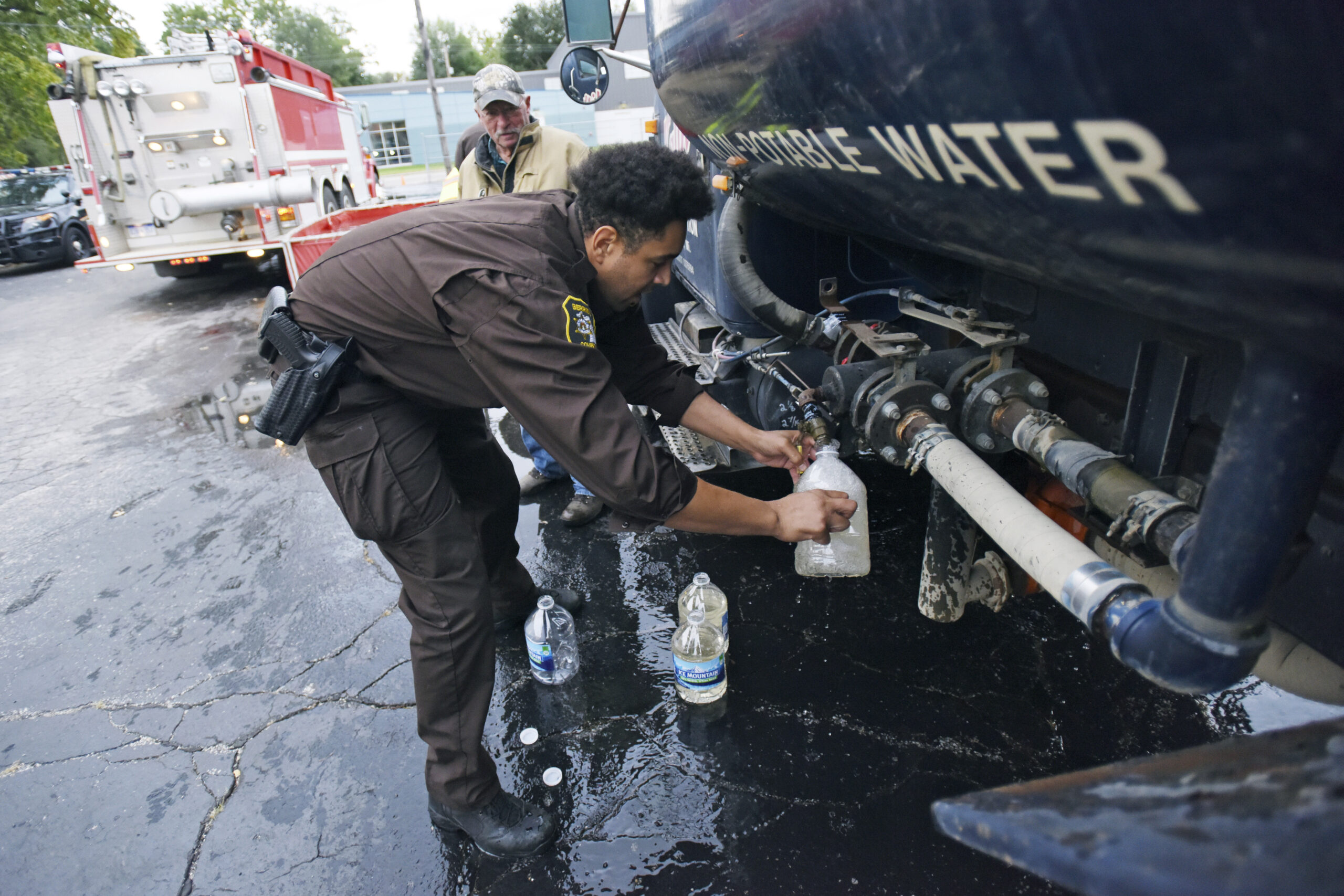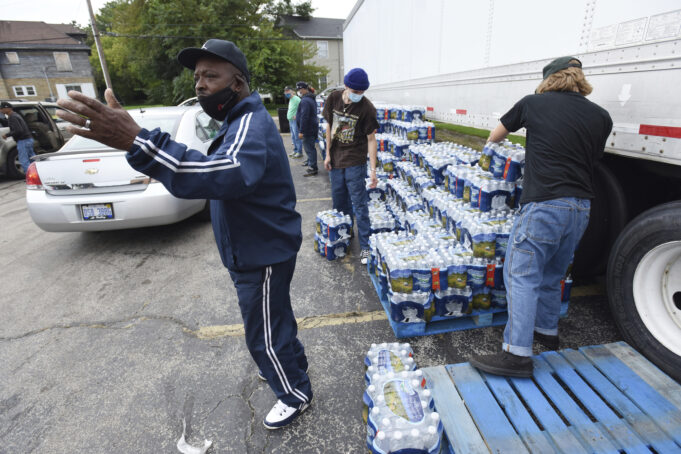Benton Harbor, a modest city in Michigan of nearly 10,000 residents—85 percent of whom are Black—is still in a state of emergency due to dangerous levels of lead in the water that has residents using bottled water.
The residents of Benton Harbor have been dealing with high levels of lead in their water since 2018. The Environmental Protection Agency reported there should be zero traces of lead in drinking water and that even low levels can cause “damage to the central and peripheral nervous system, learning disabilities, shorter stature, impaired hearing, and impaired formation and function of blood cells.”
Since 2018 residents were made aware through a major press conference, news reports and were supplied with bottled water and water filters, said Mayor Marcus Muhammad. However, the problem itself—decades-old lead pipes and lack of funding—is proving hard to solve.
Michigan Governor Gretchen Whitmer visited Benton Harbor Oct. 19 to meet with residents and local leaders to implement an “all-hands-on-deck” approach and to coordinate with federal, state and local stakeholders to address the water crisis. She called for and hopes the Republican-controlled state legislature will approve an additional $11.4 million to fix the lead pipes. It is estimated that $30 million will be needed to replace the pipes. The city was able to raise $18.6 million toward the effort.
In the meantime, residents won’t be able to use water piped into their homes for cooking or drinking for another 18 months. However, using the water for showering and bathing is not a threat, the Associated Press reported. A water break that cut off the city’s water pressure for 24 hours on Oct. 20 exposed problems with bacterial accumulation in the water supply.
Mayor Muhammad told The Final Call that officials have been working vigorously to address the water crisis.
“We currently have 30,000 cases of water coming in per week along with expanding pick-up sites, and we’re in the process of hiring residents for the delivery and that will be for disabled senior citizens and/or persons who cannot or are not able to get the water themselves,” said Mayor Muhammad.
“It’s an all-hands-on-deck, whole-government approach as the governor stated to address the issue in Benton Harbor,” he explained. “One of the things we’ve also identified is that residents have lead pipes for plumbing in their homes, so I’m working with the Whitmer administration to procure funding to not only help residents replace the lead service line from the curb to the house, but also to replace the plumbing in the home.”
Officials are also working with the Environmental Protection Agency to replace Benton Harbor’s 100-year-old water distribution system and install a better monitoring system to prevent high levels of lead. The cost of the replacement project is $6 million.

Mayor Muhammad said cities across the country with lead leaks are a lesson for Benton Harbor, especially the crisis that began in 2014 nearly180 miles away in Flint, Mich.
Flint resident Audrey Muhammad told The Final Call that for a while, local officials knew the effects of consuming lead but did not inform the public. “For a long time my neighbor said, ‘I don’t think something’s wrong with this water. Do you?’ and I said, ‘Yeah! Don’t you drink that water.’ They already knew the effects of it, it’s been studied for years.”
Ms. Muhammad, a Flint activist who is also running for City Council, believes residents’ only choice is to protect themselves. She is encouraging residents to set up water filtration systems in their homes.
“The residents should show up, and make sure that their voices are heard because they’re not caring about us. … We need to let them know that we need some changes right away. We gotta have unity in the community,” said Eric Mayes, a member of the Flint City Council.
“Even to this day, they should just be telling the people the water’s unsafe rather than tell the people to drink bottled water for precaution. You’ve got issues in say, Jackson, Miss., so you can see similarities in Black cities. Some of these cities with old houses, the Whites move out and the Blacks move in. … It’s a problem around the country,” said the councilman.
“There are many lessons that can be learned from Flint which is why I traveled, and I’ve also met with the former mayor to listen and learn, to find out what worked, what didn’t work. Moving forward, what can we do in Benton Harbor? We can be a model for the cities,” said Mayor Muhammad.
According to a study from aquasana.com, Washington D.C., Chicago and Flint are cities with the highest lead levels in the water. It is believed that homes built before 1986 are especially susceptible to having lead contamination in plumbing.
It is also common for impoverished cities to be at higher risk of exposure to lead, reported the Centers for Disease Control and Prevention. Blacks and Native Americans have the highest poverty rates and disproportionately make up the population of many impoverished cities, reported the United States Census Bureau.
“The politics in the state of Michigan is so toxic and corrosive that as she (Gov. Whitmer) navigated working with our opposition party, the city of Benton Harbor had to work and do all that we could do working with the state as well as federal government to procure as much money as we could,” said Mayor Muhammad.
With a poverty rate of 45 percent, according to a study by worldpopulationreview.com, Benton Harbor will need additional assistance despite current efforts.
The state of Michigan is expecting $3 million from the Michigan Clean Water plan and a $5.6 million grant to address Benton Harbor’s emergency crisis.
“I’m focused on the residents and helping to remove every lead service line in this city, so by next year, I’ll be able to stand with the governor, lieutenant governor and city council and say Benton Harbor is lead free,” said Mayor Muhammad.













